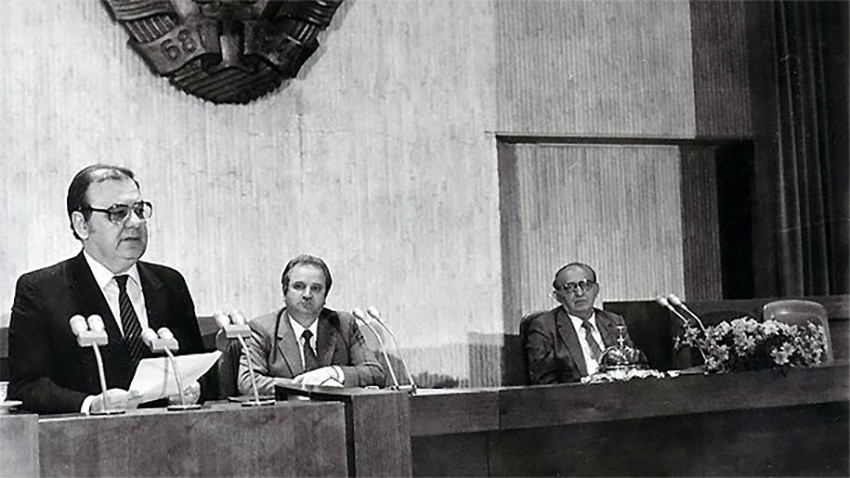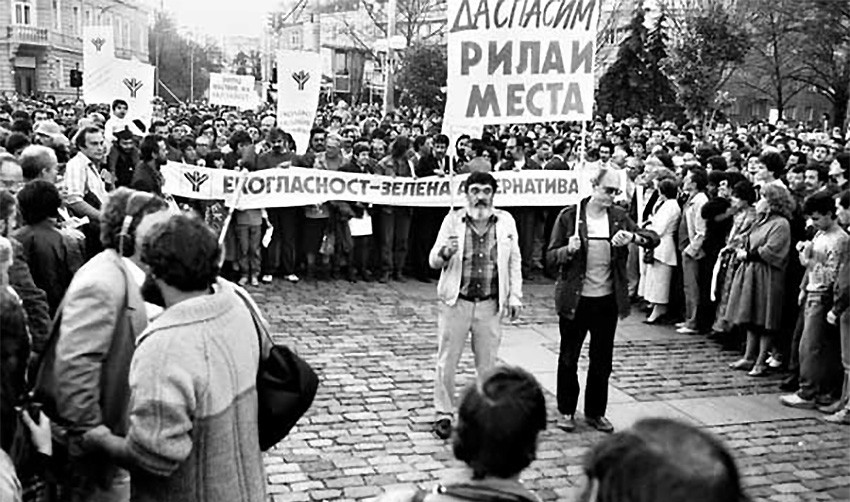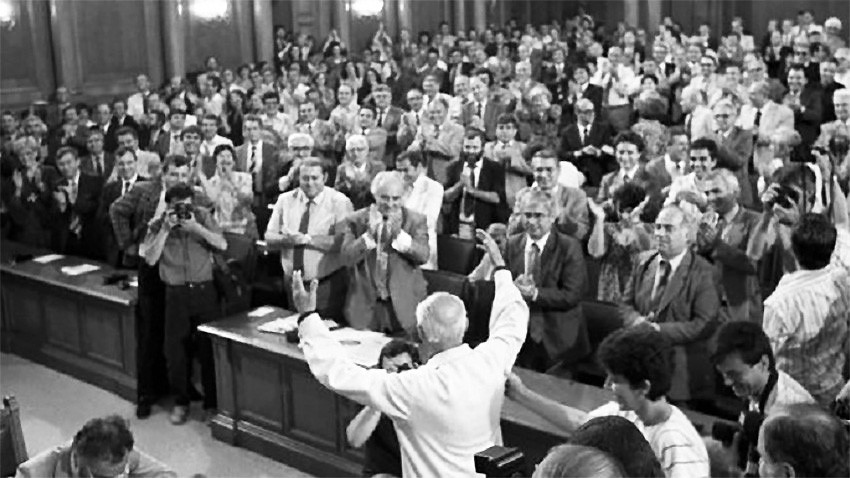On November 10, 1989, at a plenum of the Central Committee of the Bulgarian Communist Party, Todor Zhivkov was removed from the position of General Secretary - the highest position in the party and the state. What happened at the meeting would later be defined as an "internal party coup", and the subsequent events would go down in our recent history as the "quiet revolution". Despite the fact that the system was changed the following year and the first economic reforms began only after the elections for the 36th National Assembly in 1991, November 10, 1989 became a symbol of the beginning of Bulgaria's transition to democracy and market economy. Today is the 35th anniversary of the historic plenum. Todor Zhivkov also ruled for exactly 35 years. The anniversary definitely provokes memories, reflections and thinking over the events of the past.

The plenum was symbolic and determined the direction of Bulgaria’s recent history, but it was not the first thing to set in motion our path to a democratic society. A week before that - on November 3, the newly formed independent association "Ekoglasnost" organized a protest march and handed over a petition in parliament against the hydroelectric construction in Rila mountain. No one had seen an event like this march for more than 40 years. At the same time, a wave of peaceful protests gradually started throughout the Eastern Bloc and soon the term "Autumn of Nations" emerged.
"The spirits were preparing for a change", says Dr. Petar Beron - one of the most prominent modern scientists, successor and namesake of the author of the Fish Primer, but also one of the founders of "Ekoglasnost" and the Union of Democratic Forces (SDS), a participant in the National Roundtable and one of the people who signed Bulgaria’s new Constitution.

We from "Ekoglasnost" collected signatures downtown Sofia, Dr. Beron tells Radio Bulgaria and adds:
"We collected the signatures, but we also had to bring them to the parliament. This had never happened before. I went to the town hall and stated that the next day a demonstration would pass under their windows and security should be provided to avoid unrest. The mayor was shocked, but he organized people with red ribbons, while we put blue ribbons on. The blue color later became the symbol of the Union of Democratic Forces . On November 3, we set off with about 3,000 brave people towards the parliament. When we reached Alexander Nevsky square, exactly at 5 p.m., the bells rang. The people wept and said, ‘It’s finished!’"
The same shouts would be heard on November 10, as well as at the rallies organized in the following days. "However, we soon realized that the transformation of power is not an easy task. The communists had the money, the army, the militia and the secret services in their hands, and the people had nothing, but they did not want the old regime", Peter Beron recalls and adds that in order to avoid bloodshed, a National Round Table was formed, at which the Union of Democratic Forces and the Bulgarian Communist Party negotiated and signed a number of agreements to guarantee the peaceful development of the transition. A Grand National Assembly was also convened for the drafting of the new Constitution:

"The Great National Assembly was a truly representative sample of society. It included the prisoners and their executioners, the best writers and musicians - such as Valeri Petrov, Kiril Marichkov, etc. We drew up a European constitution. Its first part was taken from the EU Charter of Fundamental Rights - freedom of speech, press, travel, etc.”
According to Dr. Peter Beron, in order to get out of the political crisis today, we need a national doctrine and a sense of national dignity.
This is also the reason why many young people leave our country. " What is the use of our democracy without Bulgarians?" he asks.
"Where are we today? We are where we have been for 13 centuries. Our country is the only one in Europe that has kept its name all this time. We are divided into Russophiles and people with Western beliefs, but we are one people - we breathe the same air. We must help each other and take care of our country! It would be a pity if our country disappeared, because of indolence and indulgence. We have wonderful nature, fertile land, mountains, rivers, and hard-working people. We are a people with dignity, history, traditions and a geographical position that is strategically important - these are trump cards that we can use, but it is also necessary to learn to refuse."
Publication in English: Al. Markov
Photos: BGNES, BNR – library, archive
The newest exhibition at the National Museum of Military History in Sofia, 'War and the Creatives: A Journey Through Darkness' opens today, offering free entry as a gesture to those who were unable to visit during the recent renovations. Rather than..
A 5,000-year-long history lies hidden in the ruins of the medieval fortress “Ryahovets” near the town of Gorna Oryahovitsa where active excavations began ten years ago. On this occasion, on November 17, the Historical Museum in Gorna Oryahovitsa..
Just days ago, archaeologists uncovered part of the complex underground infrastructure that once served the Roman baths of Ratiaria - one of the most important ancient cities in Bulgaria’s northwest. Founded in the 1st century in the area of..

+359 2 9336 661
